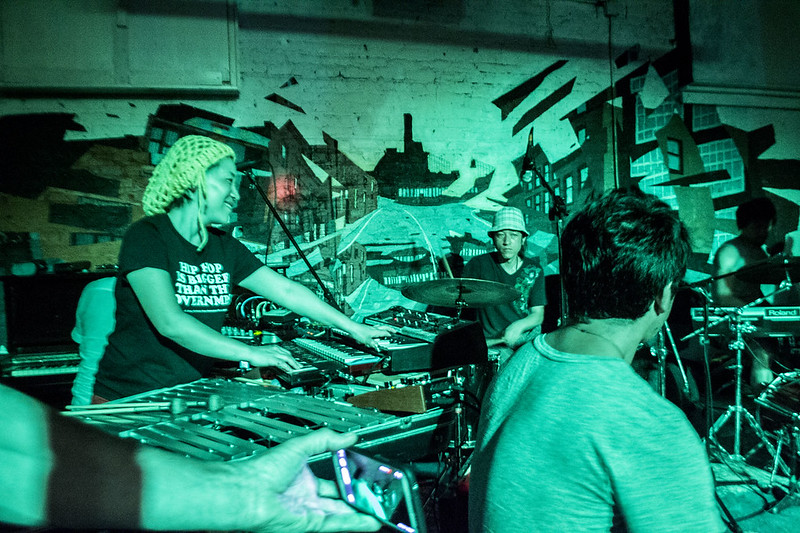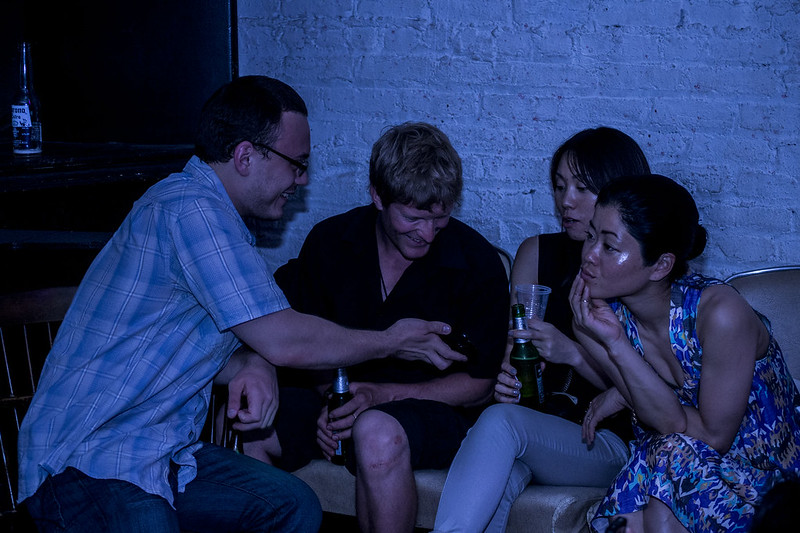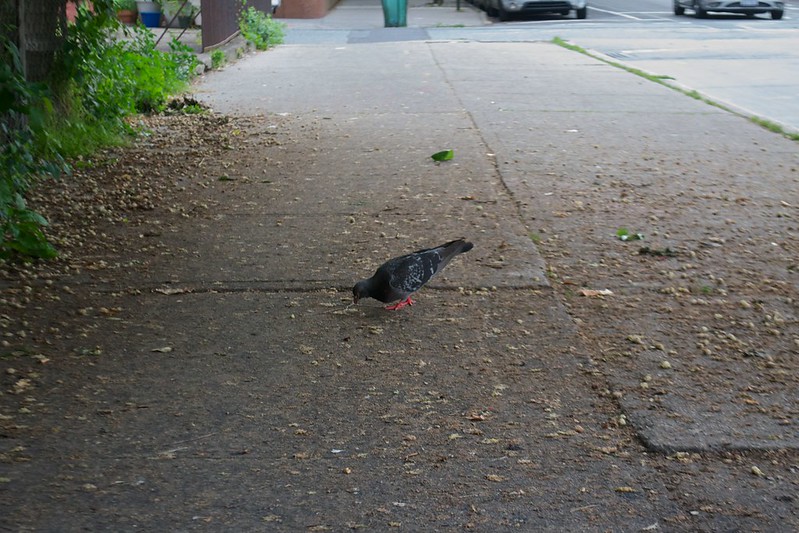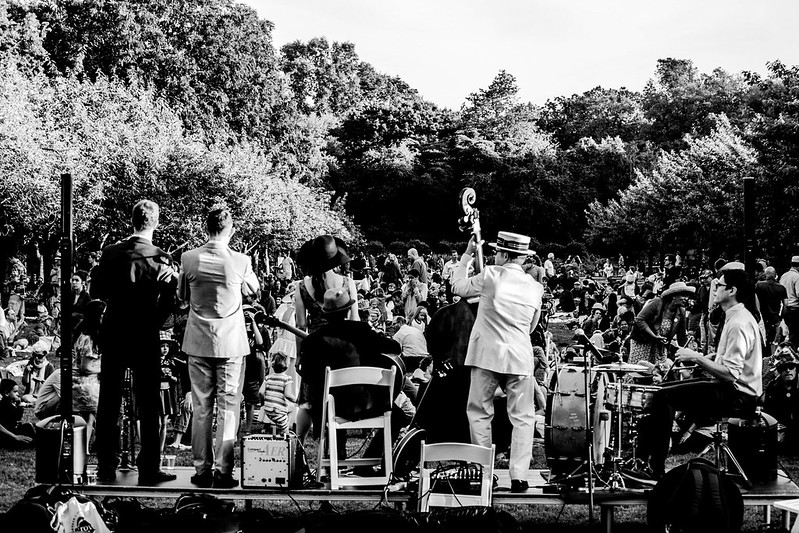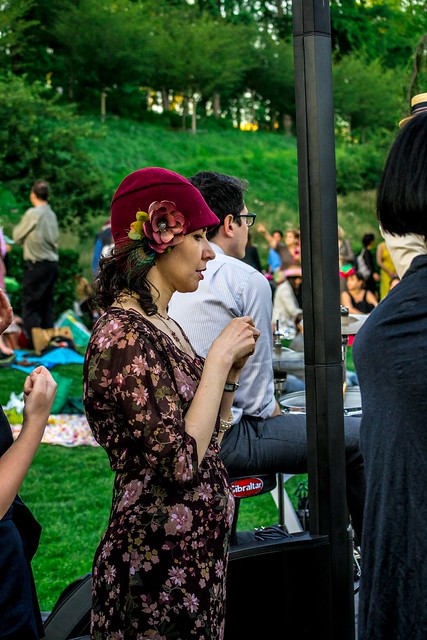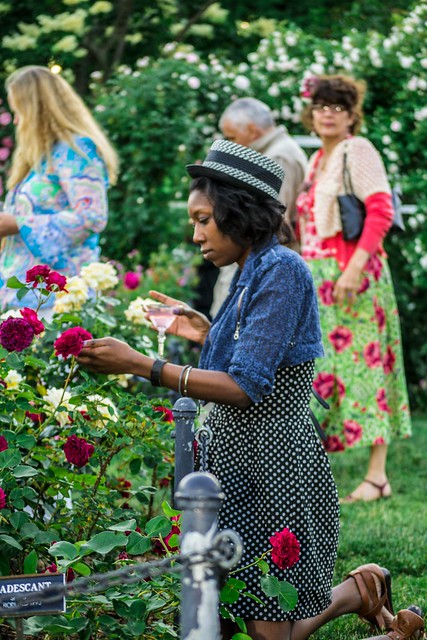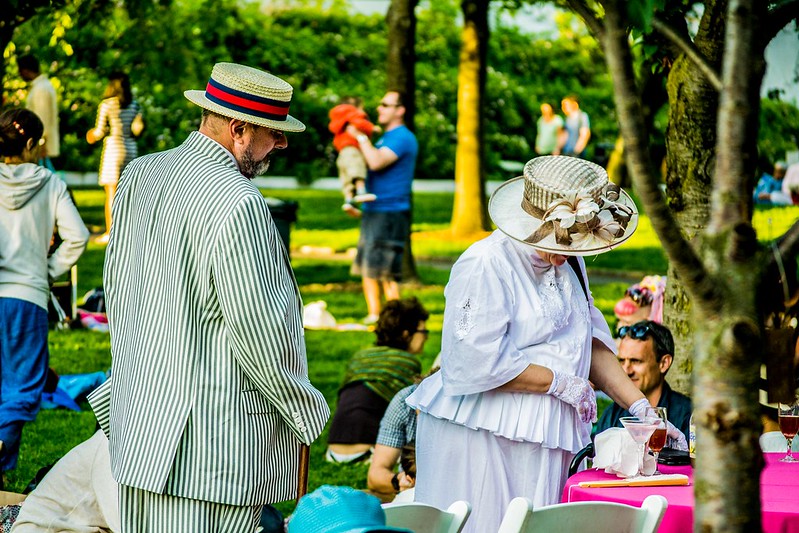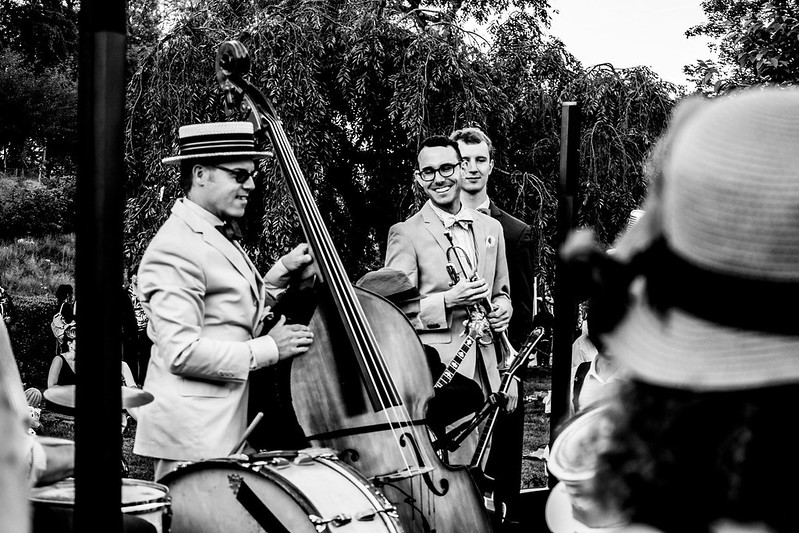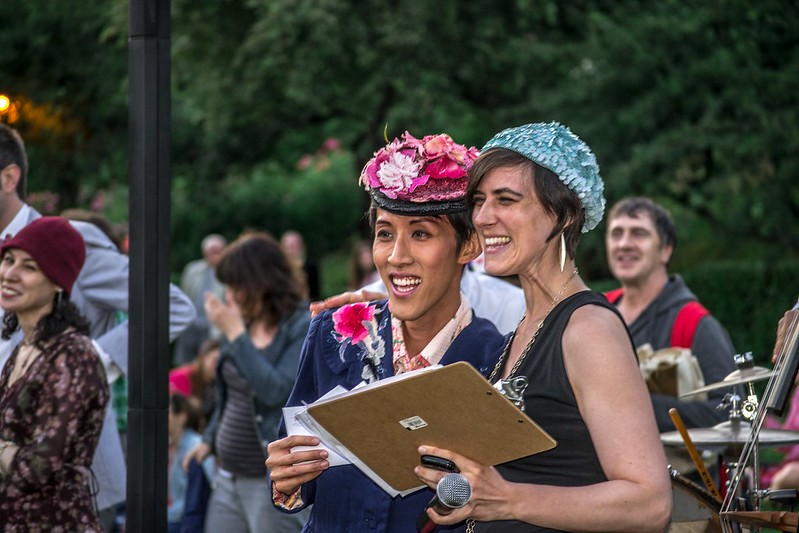I'm sick. argh. Either too much airconditioning and 90 degree days or a little too close to a old flemish gent but either way I'm at about %50 potency.
But it is Wednesday and I have a Photographic mission.
This weeks Photos for Wednesdays are of a subject I've wanted to write about for a while now.
The Boysenberry.

Each year, late into Spring, after trees have sprouted leaves and sweaters all but disappeared a curious berry appears dotting certain Brooklyn streetscapes. Equally curious is how the berry buds suddenly appear first leaf green then red and finally a mixture of color spanning the blackberry to raspberry spectrum.
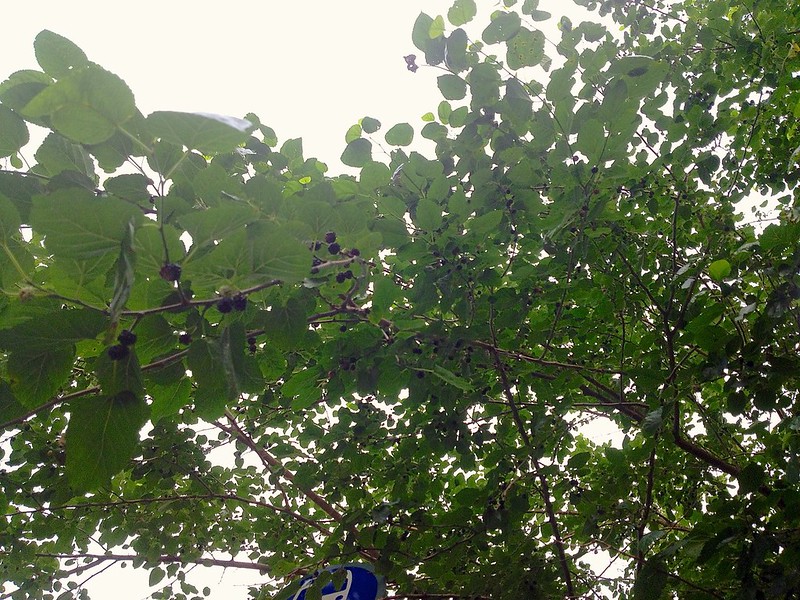
That's appropriate but more on that later. As with most things on this blog I have a personal remembrance on the subject. Each school year my child mind full of the impending ever important summer vacation, I'd be startled from my distraction by the berry sight of trees with low hanging fruit. So much fruit in fact that the tree branches would bend generously toward the street below, graciously offer a sweet flavorful break in the day.
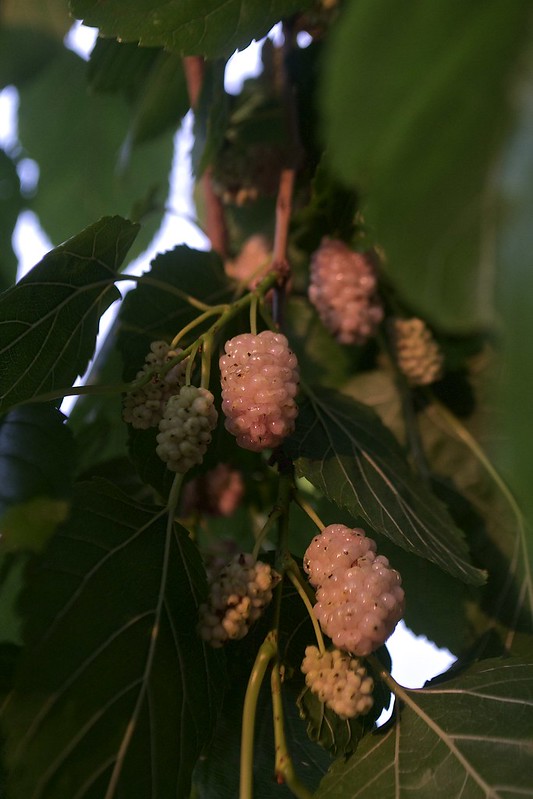
Almost more fun than plucking grape sized fruit and popping them direct to my mouth, was the horrified looks I'd get from passersby, 3rd and 4th generation urban dwellers who were likely without the benefit of a weird year spent on a farm as I'd had, or random trips to the Caribbean as were often orchestrated by family, or maybe the people which with terror and my berry red lips just had no expectation that anything nourishing could come from a Brooklyn street.
Since then, I've looked forward (and up) to the trees impending blossoms. This year is the latest bloom I can recall, I blame climate change, and the berries don't disappoint.
You'd think with all the locally sourced fervor taking over Brooklyn in the last few years there'd be no end to the appearances and usages of Boysenberries on tony tables but nope all that hype is saved for rhubarb and ramps. (Ramps? really?)
A few years ago I brought up the berry topic with a friend and fellow native brooklynite. I called them Mulberries. He insisted they were Boysenberries. A wiki search proved him correct, much to my dismay. The same wiki page informed me not only that these Berries were Boysen, but that there were white variations of the same.
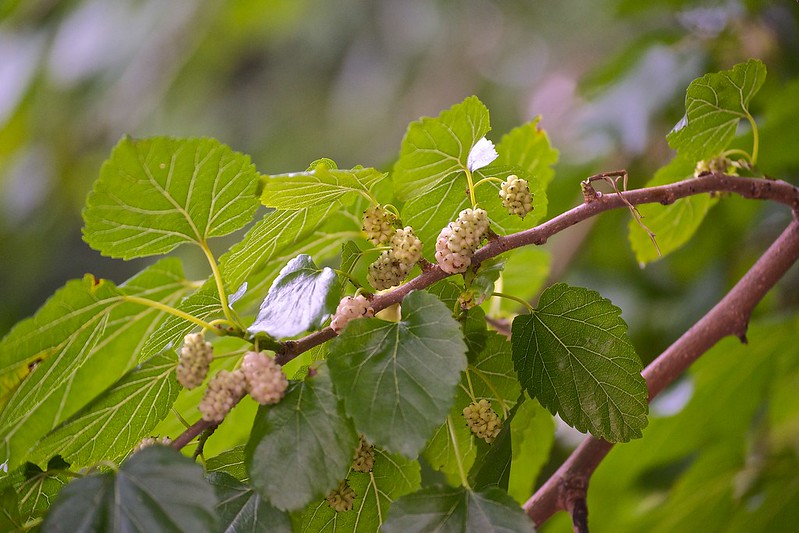
Of course a week or two later, the moon lighting my bike path home, I came across two men on the sidewalk, standing the dark shade of a broad tree. They were in a curious discussion and I slowed. Surrounding them on the concrete ground was a familiar stipple pattern of small dark stains. Weary, it is still Bk after all I got within earshot and just as I overheard them they noticed me, one motioning me over saying, "you know what these are?" "They're berries. Not just any berries, the mythic white ones I'd recently learned of.
"You can EAT them." the night stranger offered. The Alice Carrol-esque element of his enthusiastic suggestion aside I joined them, not in the eating, too soon and too late to be eating from trees with strangers. But we chatted as they chewed and before I was on my way.
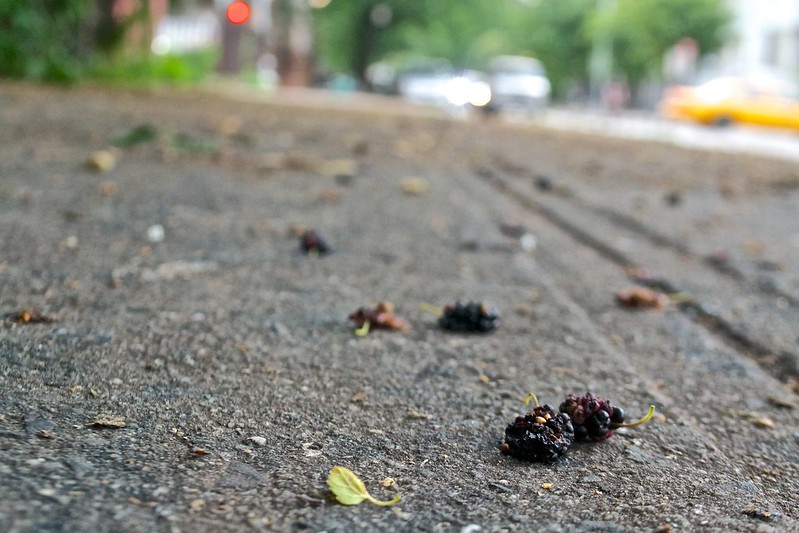
Speaking of that tell-tale pattern of berry stains on the ground; I'd always presumed it was the result of fallen fruit from the wind blowing or perhaps the juicy fruit was simply too heavy for it's spindly stem but as I was taking the photos featured here, I got my answer. Fruit was falling like late August rain, in uneven in large and small droplets all while I took photos. Finally I felt the urge to look up to where many berries were falling from and I came eye to eye with this guy, the culprit.

That squirrel seems to be enamored with his territory and I don't blame him, it's not on every block that you find Boysen. I have a memorized few streets where the easily accessible fruit treats can be reliably found. One is the corner of Eastern Parkway and Washington. Another is in front of the church (St. Teresa's) on Classon near Sterling Place. And there's a few more in people's yards but I'm keeping those on the hush.
I've since learned the
Boysenberry is in fact a hybrid man made fruit. A combination of such fruits as Raspberries, Blackberries and currants. Made by one Rudolph Boysen, who started the work before it eventually became the concern of the same Walter Knott for whom Knott's Berry Farm is named.
The fruit was cultivated in the 1920's which may explain why it's so plentiful in brooklyn front yards as a large number of homeowners especially brownstone owners were planting fruit trees of various climate friendly varieties.
For years I've meant to do a full on harvest ending in a juice or a pie but this year the fruit came on later than expected and I'm a little slow today so get a start on next year and grab them while you can. Hurry the squirrels and pigeons have ganged up!
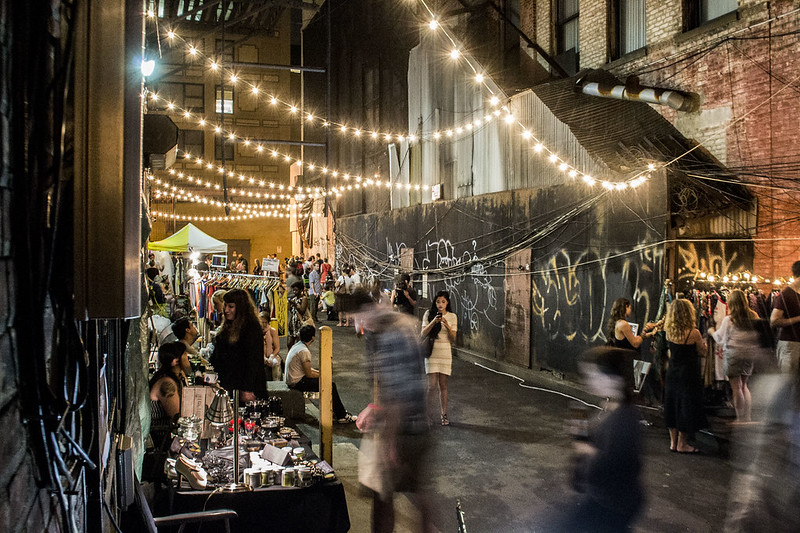

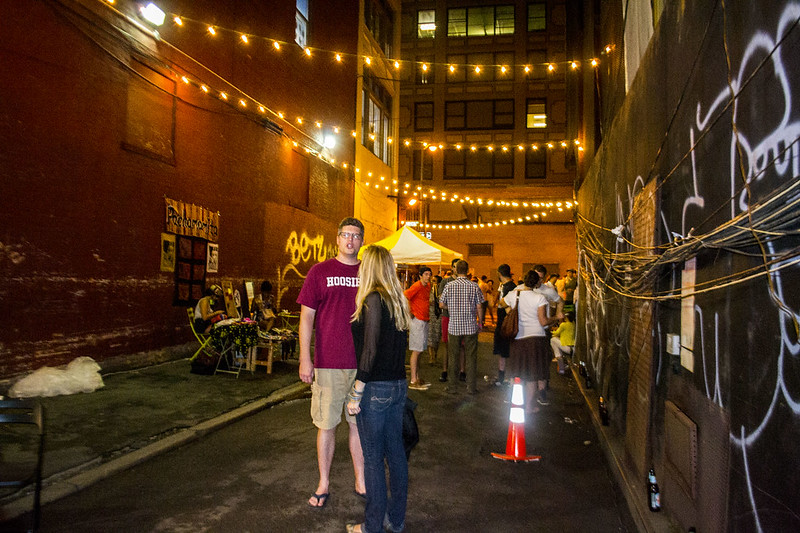 Meanwhile Studio BPM avoided the whimper choosing instead to go with the musical bang ala jam session.
Meanwhile Studio BPM avoided the whimper choosing instead to go with the musical bang ala jam session.
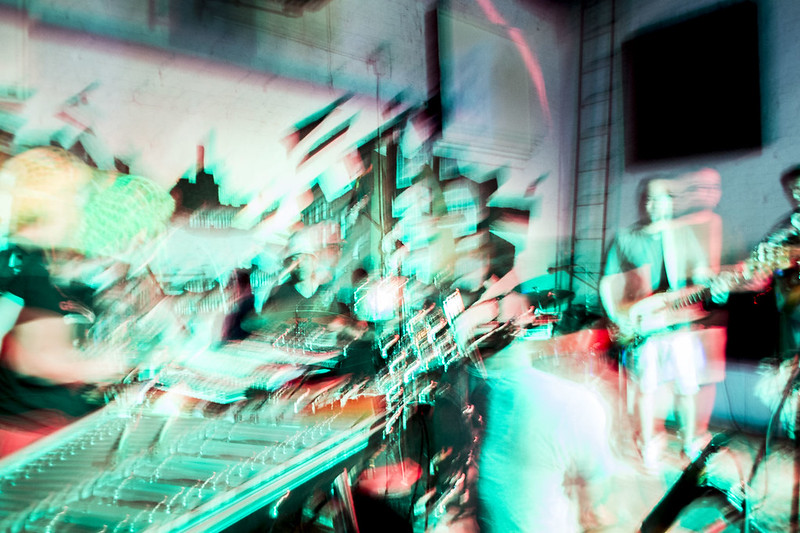 It was crowded, cozy, loud, rapturous a little drunken and everything else the hole in the wall music venue has been for ten years, if it had to close it went out hard.
It was crowded, cozy, loud, rapturous a little drunken and everything else the hole in the wall music venue has been for ten years, if it had to close it went out hard.
